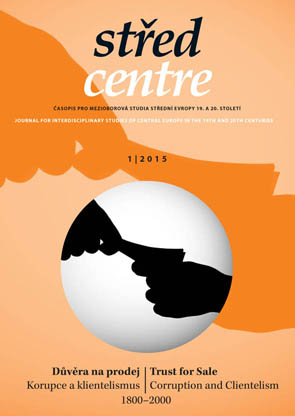Heroes or Thieves? Nepotism, Clientage and Paramilitary Violence in Hungary, 1919–1921
Heroes or Thieves? Nepotism, Clientage and Paramilitary Violence in Hungary, 1919–1921
Author(s): Béla BodóSubject(s): History
Published by: AV ČR - Akademie věd České republiky - Masarykův ústav
Keywords: political violence; anti-Semitism; Hungary; Pál Prónay; Iván Héjjas; clients; mafi a; paramilitary groups; civil war; retreat of the state
Summary/Abstract: This article examines the social context of paramilitary violence and scrutinizes the motives of the perpetrators in Hungary between 1919 and 1921 in a social context. The atrocities committed against middle-class Jews, the article argues, was primarily motivated by greed rather than ethnic and religious hatred; they were favored by the “retreat of the state,” its loss of monopoly on the means of violence and a collusion between the political and social elites and middle-class organizations, on the one hand, and the paramilitary groups, on the other. The article attributes the defeat of the militia movement in Hungary to its leaders’ lack of political talent and the slow restoration of law and order under the conservative government of István Bethlen in the early 1920s.
Journal: Střed. Časopis pro mezioborová studia Střední Evropy 19. a 20. století
- Issue Year: 7/2015
- Issue No: 1
- Page Range: 66-114
- Page Count: 49

